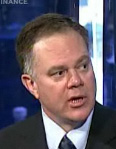How do we know at what level our consumption is sustainable, and when we’re in planetary overshoot? How do we quantify what the planet’s capacity is to meet human demands, and how much of that capacity is renewable, and how much of it is just being permanently depleted? And once we had a way to quantify that, what would we do with that information? Would we use it to inform our actions and avert overpopulation and disaster? Would we ignore it at our peril? Or would reality just unfold in some messy fashion along a default path somewhere in between? Is a deliberate transition to a sustainable energy system even possible?
Our guest in this episode created a scientific methodology called “ecological footprint analysis,” a kind of ecological accounting, to inform policymakers about our resource demands on the world as compared with Earth’s ability to meet those demands. Earth Overshoot Day, which the Global Footprint Network calculates every year, arrived on August 2, meaning “that in seven months, we emitted more carbon than the oceans and forest can absorb in a year, we caught more fish, felled more trees, harvested more, and consumed more water than the Earth was able to produce in the same period.” After listening to this discussion, you’ll never quite think of energy transition the same way again.
Geek rating: 2
Guest: Dr. William Rees is an ecological economist Professor Emeritus and former director of the University of British Columbia’s School of Community and Regional Planning. The originator of eco-footprint analysis, he has an extensive opus of peer-reviewed articles on the biophysical prerequisites for sustainability in an era of accelerating ecological change. Dr. Rees was a founding director and past-president of the Canadian Society for Ecological Economics, a founding director of the One Earth Initiative and is a Fellow of the Post-Carbon Institute.
On the Web: https://scarp.ubc.ca/people/william-rees
Recording date: September 22, 2017
Air date: October 18, 2017
Teaser photo credit: Earthday.org website






